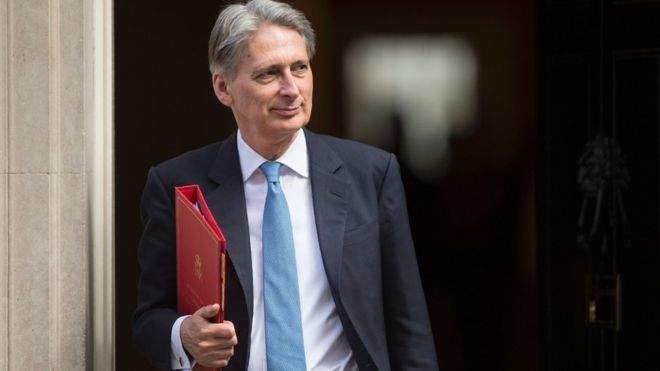
When Philip Hammond delivers his Budget this week he would do well do remember the rich; he needs to keep them just where we need them — in the UK, writes Alec Marsh
When the chancellor Philip Hammond rises to his feet at 12.30pm on Wednesday to address the House of Commons he’ll have many priorities to focus on — building more houses and supporting investment in artificial intelligence being two. One of the most pressing should be on fixing the government’s reputation with the rich.
For the incompetently cancelled-then-reborn tightening up of the non-dom regime in the UK, along with the prime minister Theresa May’s anti-HNW rhetoric (the ‘citizens of nowhere’ speech at the steps of Number 10, when she took office) have all had a cooling impact on the environment for the wealthy in the UK.
As one UK-resident HNW told me the other day: ‘I know ten people who have left: they don’t like the changes, they don’t like the government’s attitude to them.’ And with other jurisdictions such as Italy and Portugal unveiling attractive non-dom regimes for the increasing mobile rich, who can blame them? Why stay and be pilloried in a public arena best described as a race to the bottom led by Jeremy Corbyn’s Labour party, when you can be welcomed with open arms (and tax coffers) in Rome or Lisbon? And then there are those non-dom privileges that have removed from expat Britons returning from overseas; these people won’t be hurrying back to mother country any time soon and nor will their dosh.
For evidence of a fall-off in HNW sentiment in the UK, look no further than the woes of the prime central London property market. Prices have already fallen by more than 15 per cent since their peak in 2014, and are forecast to remain flat until 2019. And, for the record, it’s worth pointing out that price inflation in this area does little to hurt the average Briton, who in the words of one housing expert, ‘has never been able to afford Kensington and Chelsea.’ Attractive as it that proposition might be, were it to occur, the repercussions on the wider housing market to make it happen wouldn’t be worth dreaming of.
And property tax is another example of the government’s growing hostility — as some would see it — towards the rich. George Osborne’s spike in Stamp Duty — rising to 10 per cent on all properties over £925k — is effectively a mansion tax by another name, and one that has had ill-effects on the elite end of the market. According to the Institute for Fiscal Studies, the top 1 per cent of sales produced 25 per cent of government SDLT revenue in 2015/16 (so bringing it closer into line with the proportions of income tax paid by the top percentage). The new 10 per cent band is undoubtedly putting buyers off and changing their buying patterns, and helping to contribute to an overall impression that Britain is not interested in welcoming the world’s rich to its doors. As a result they’re laughing all the way to the banks in Monaco and elsewhere.
And it’s all having an effect: according to Credit Suisse, the number of dollar millionaires in the UK will contract over the next five years by 3 per cent from 2,189 to 2,126. This compares with expectations of double digital growth in other mature economies, Monaco included.
This matters. Fewer millionaires in Britain or coming here equals fewer Bentleys or Roll-Royces sold here, it means fewer Fortnum & Mason hampers sold here, fewer Burberry raincoats sold here; it means fewer new-build flats in central London sold — with the important ramifications on supply chains, whether you’re talking a shoemaker at John Lobb in St James’s, a gunsmith over the road at William Evans, or a trim-fitter working on the Mulsanne line at Bentley in Crewe.
This, of course, is the dreaded law of unintended consequences, which when paired with a hostile rhetorical stance and a legislative framework born of the need to counter the rise of Corbynism, will surely leave Britain poorer, (as indeed Britons typically already are on 2007-levels to the tune of £830 a year, according to the Resolution Foundation).
So by the time he has sat down at the end of his speech on Wednesday, Mr Hammond would do well to have sounded a more conciliatory note to the rich of the world. Come to Britain and spend your money here should be his clear message. Many jobs in the UK economy depend on the goodwill and commitment of the global HNW community to this country: and, as the chancellor knows better than most, where there’s jobs there’s tax revenue. And that can be redistributed for the good of the many, too. If only Comrade Corbyn understood this, then Britain would be in a less precarious place. For now, our fate is in Mr Hammond’s hands.
Forty years after the then chancellor Denys Healey famously declared (though he later denied it) that he wanted to ‘squeeze the rich until the pips squeak’, it is a moment to pause. Tax the rich appropriately, sure: apply just the right amount of pressure to the pips — but be warned, if you press to hard, you’ll scare them away and we’ll all be the poorer for it.
Alec Marsh is editor of Spear’s






